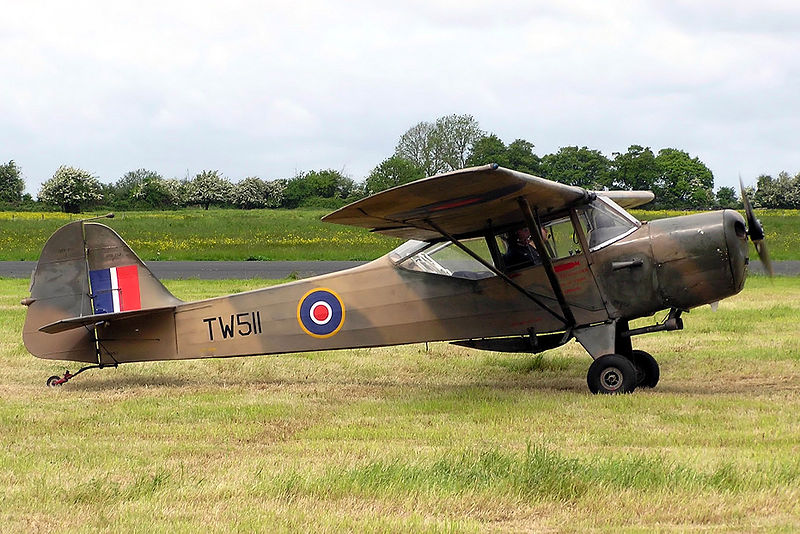When you think of British aviation during World War II, Spitfires are probably the fist aircraft that come to mind but the Gympie Times in Queensland has recently brought our attention to a nearly as important but forgotten British aircraft from the war: The Taylorcraft Auster. Unlike the famous Spitfire, Taylorcraft Austers weren’t used as fighters but they played just as important of a role as British military liaison and observation aircraft 
Gympie aviation buff Chris de Vere happens to own one registered as VH-ABA – a registration that was previously held by a huge Sunderland flying boat that was sold to Qantas in 1938 and later scrapped (Hence, the aircraft is painted in Quantas colours). However, the article is a bit confusing as it calls his aircraft an Auster Autocar which (according to Wikipedia) was actually built after the war ended as a touring aircraft but a quick look up of the registration ID VH-ABA reveals that the aircraft in Gympie is an Auster AOP.V built in 1943.
However, owning an old aircraft is both a love hate relationship as de Vere says:
A problem is that getting parts has become damned near impossible.
It is love at first sight, but hate when you realise all the blokes who know how to work on it are retired or dead.
The last person to work on it was in his 80s.
He also commented that there are less than a dozen still flying.
Auster Aircraft Limited itself only existed in Leicestershire from 1938 to 1961 when it merged with Beagle Aircraft Limited which in turn was put into receivership in 1969 after it had become government controlled and needed more financial assistance. Auster models would also be extensively used after the war in the UK and British colonies for a variety of purposes with the name finally being dropped in 1968.